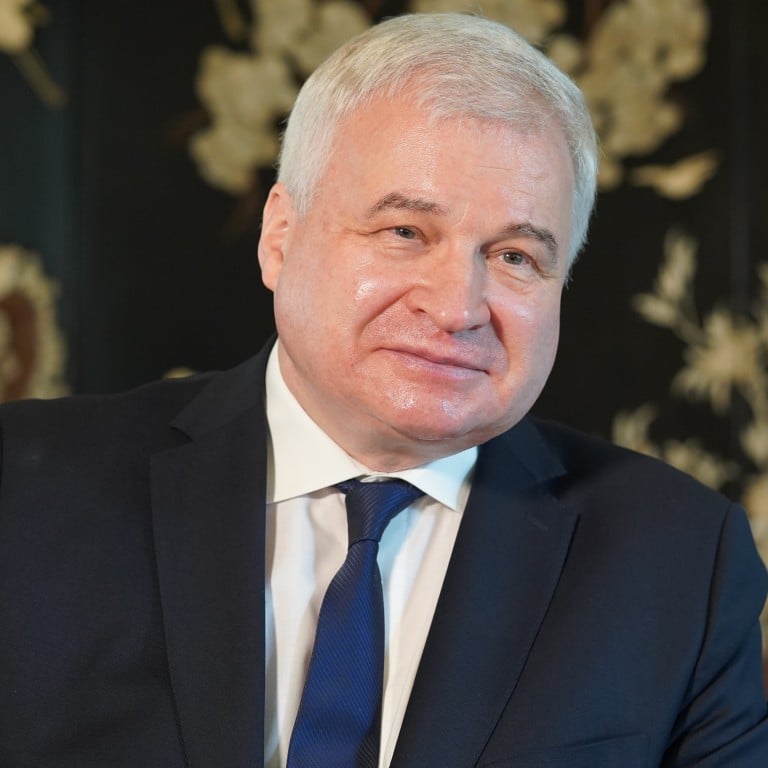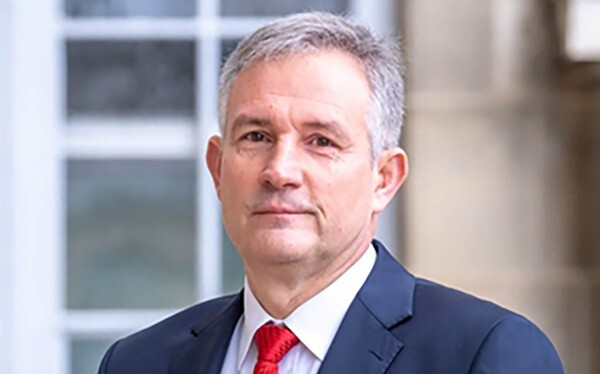
How a peace forum in China became an international war of words
- Representatives of the UN’s Big Five spar in front of hundreds of students, academics and diplomats at a conference in the Chinese capital
- Ambassadors to China from Russia and France face off over whether Beijing is trying to export or impose its ideology beyond its shores
Top diplomats from the UN’s “Big Five” powers erupted into a war of words over global governance during a Beijing conference on the weekend, reflecting bigger ideological battles on the international stage.
On one side were envoys from China and Russia; on the other were representatives from France, Britain and the United States. In a rare appearance in front of hundreds of diplomats, academics and students in the Chinese capital on Sunday, they traded accusations and hinted at diplomatic infractions.
The sparring took place in front of a majority Chinese audience at the World Peace Forum organised by Tsinghua University and the Chinese People’s Institute of Foreign Affairs, a government-run policy group.
“If somebody gives me just one example of the Communist Party of China imposing its ideology on anybody outside Chinese borders, I would be very grateful,” Russian ambassador to China Andrey Denisov said.
Denisov’s statement was challenged by the French ambassador to China, Laurent Bili, who said “nobody would have questioned the idea of China wanting to impose its model” until last year when, he said, there had been concerns in his country about China’s threats to freedom of expression.
China and Russia pledge cooperation on data security, Arctic sea route
“[Since one year ago], we have [seen] direct attacks to our freedom of expression in our country, with some attacks to society, to some journalists and that raised a lot of questions. That is a real question,” Bili said.

Denisov cut him short, saying: “There is no relation to ideology, I am sorry.”
Bili promptly responded: “Freedom of speech – freedom, liberty, democracy – it’s quite a question of ideology.”
“Fine, fine, freedom,” Denisov said, apparently irritated, as he cited examples of former US president George H.W. Bush lecturing Russia on freedom and democracy. “We know how it works in Libya, Syria, Iraq, Afghanistan, and I see no reason to continue our discussion.”
The intense debate between the Russian and French ambassadors underscored broader geopolitical tensions as Washington strives to contain Beijing’s increasing assertiveness and growing role in global governance, and Moscow and its allies back China.
Washington has called on allies to join and defend a “rule-based international order” and accused Beijing and Moscow over issues such as human rights, cyberattacks and unfair trade practices.
Xi and Putin show united front in message to Biden
During the conference on Sunday, the US acting charge d’affaires in China, William Klein, said democracies around the world faced an “assertive China and disruptive Russia”.
Klein said all countries “face challenges that do not respect order, including climate crisis, coronavirus, and technological revolution that is reshaping every aspect of our lives”. He said the US would not force allies into a “us or them choice” with China.
Denisov’s speech was an apparent backing of Yu Hongjun, former vice-minister of the international department of the party’s Central Committee, who told the audience China had not tried to export its own governing model, unlike “some people”.
Yu, who formerly handled China’s relations with other communist parties, did not name the US but made obvious reference to its troop withdrawal from Afghanistan after two decades stationed there.
“Some people have a kind of civilisation superiority and feel superior about their civilisation over others,” Yu said.
“They think their civilisation should replace all civilisations and extend its own ideologies to other countries, causing instability, disruptions and conflict.
“Afghanistan is a typical example where democratic reform has failed, and now [someone] wants to just leave. A bigger disaster is waiting.”
Meanwhile, British ambassador to China Caroline Wilson gave a more direct shot from the stage.
“We were one of the first countries to recognise China in 1950 but we were not seeking to impose our own model on the People’s Republic of China, the Communist Party, not then and not now. Equally, we hope China is not trying to impose its own model on other people,” she said.
“That is important, that is why there are these universally recognised rights, in particular human rights, which is so important and an important reassurance for all countries and we all need to uphold our commitments.”
Wilson said meaningful dialogue was important to avoid a case of “chicken talking to duck”, a common Chinese phrase referring to talking but not communicating.
Xi warns foreign powers will ‘have their heads cracked and bleeding’
Both Denisov and Wilson are known as China hands. Bili was appointed French ambassador to China in 2019 and neither China or the US has appointed ambassadors in each other’s capitals.
Wilson studied Mandarin at Beijing Normal University before she took up her first overseas role at the British embassy in Beijing from 1997 to 2000, according to Britain’s government website. She was the consul general to Hong Kong and Macau and was appointed ambassador to Beijing in September 2020.
Denisov first came to China in 1973 as a translator and an economic and trade representative of the Soviet Union. He has held several roles in China and has been ambassador to China since April 2013.

